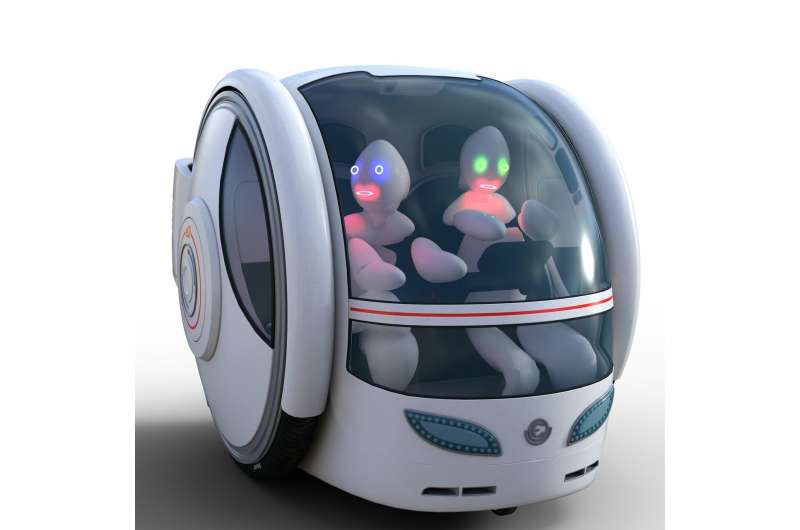Credit: CC0 Public Domain
In the first study of its kind, academics from Surrey and the University of Oxford have examined how Autonomous Vehicles (AVs) may make a substantial impact on the future of urban tourism.
AVs may be spotted on our roads as soon 2025 and the research focuses on the pros and cons of the technology with regards to the transformation of urban space, the rise of autonomous taxis, and changes to city sightseeing and hospitality in the urban night.
Potential benefits include reduced traffic congestion and emissions, improved foreign car hire processes, reduced parking requirements and cheaper taxi fares. AVs may impact other industries in radical ways too, such as Amsterdam's Red Light District, which could operate out of moving AVs, and restaurants and hotels may encounter new competition in the form of AV dining cars and passengers sleeping in their moving vehicles.
AVs are also the subject of many concerns. More time spent in cars on longer journeys could facilitate greater urban sprawl and increase car dependency. They may also reduce demand for train travel, coach tours, public transport and driven taxis—all resulting in future job losses. The potential for terrorism facilitated by AVs also raises genuine security fears.
Professor Scott Cohen, Head of Tourism and Transport at Surrey's School of Hospitality and Tourism Management, said: "This ground-breaking study will benefit urban planners, policy makers and the tourism and hospitality industries, which will face a range of threats and opportunities as AVs begin to reach the mass market in the coming decade.
"The visitor economy will be gradually transformed if AVs become fully automated and mainstream, leading to a future where hordes of small AVs could congest urban attractions, hop-on hop-off city bus tours may go out of business altogether, motorways between cities could fill at night with slow-moving AVs carrying sleeping occupants and commercial sex in moving AVs becomes a growing phenomenon."
Provided by University of Surrey
























